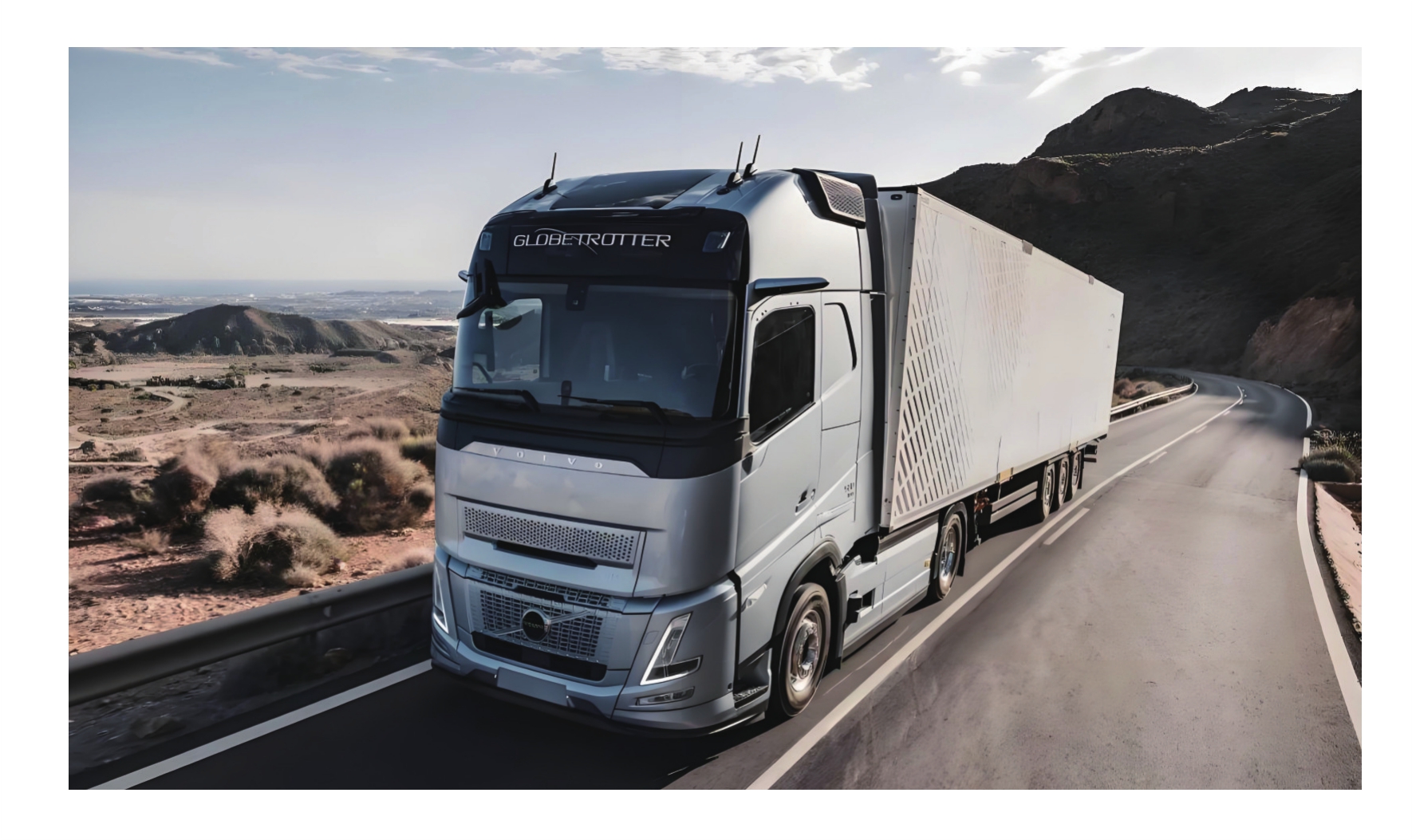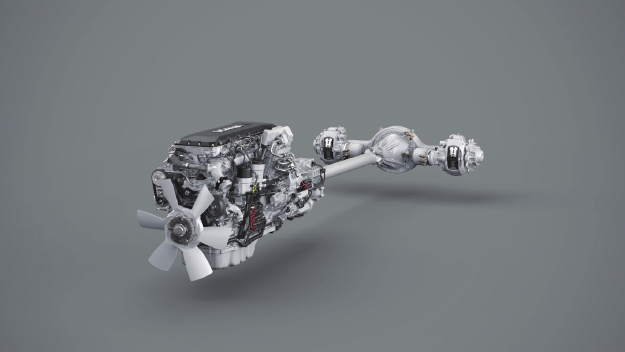Under the general trend of global energy conservation and emission reduction, the automobile and transportation industries are accelerating the process of carbon reduction and decarbonization. As the main battlefield to help reduce carbon emissions, the commercial vehicle industry is actively developing and applying various energy-saving and low-carbon technologies to achieve green and low-carbon transformation.
Recently, international commercial vehicle giants such as Volvo Trucks and Scania have launched new models that can use 100% biodiesel. This innovative move undoubtedly provides a new solution for the industry. So, compared with the currently widely used pure electric, hybrid, fuel cell and other technologies, what unique advantages do biodiesel heavy trucks have? Can they be widely used?
Significant cost and carbon reduction advantages
The so-called biodiesel refers to renewable energy produced from animal and vegetable oils, waste oils, etc., and is an internationally recognized green and clean fuel. It has the characteristics of good environmental performance, high combustion efficiency, wide source of raw materials, and renewable. In terms of calorific value, combustion efficiency and other physical and chemical properties, it is similar to ordinary diesel and is regarded as a high-quality substitute for traditional fossil fuels.
In recent years, as the global energy crisis intensifies and the green and low-carbon transformation accelerates, biodiesel has gradually become the “new favorite” in the fuel industry due to its many high-quality properties, and its promotion and application in the transportation field are becoming increasingly widespread.
“Biodiesel has proven to be an ideal alternative fuel in the transitional stage of electrification, and it can also provide a good complement to future electrification and hydrogen fuel development.” Yao Chunde, a professor at Tianjin University, said that promoting energy-saving and low-carbon transformation of internal combustion engines, zero-carbon raw material technology innovation, and electrification The development of fuel cell technology is an important way to reduce carbon emissions from commercial vehicles. But at present, the comprehensive promotion of pure electric heavy trucks and hydrogen heavy trucks has encountered bottlenecks. Under this circumstance, biodiesel heavy trucks are expected to become an important supplementary model in the commercial vehicle decarbonization and emission reduction program.
It is understood that biodiesel trucks, as a new type of green transportation, have significant environmental protection characteristics and economic applicability.
First of all, biodiesel heavy trucks have excellent environmental performance. Biodiesel is refined from renewable resources. It has the characteristics of high cetane number, non-toxic, low sulfur, degradable, and no aromatic hydrocarbons. It produces less pollutants when burned and is helpful for reducing hydrocarbons and The emission effect of carbon monoxide, sulfur oxides, particulate matter, etc. is obvious. Actual operating data shows that using B10 (blended with 10% biodiesel) can reduce 5% of carbon monoxide emissions and 10% of particulate matter emissions in diesel vehicle exhaust; if 20% of biodiesel is added to diesel, motor vehicle exhaust pollution emissions It will be further reduced by 60% to 70%.
Secondly, biodiesel heavy trucks perform better in terms of economy. On the one hand, biodiesel raw materials come from a wide range of sources, have good biomass fuel preparation technology and industrial foundation, have lower terminal retail prices, and have higher combustion efficiency, which can significantly improve the power and fuel economy of vehicles and further reduce fuel consumption. vehicle cost; on the other hand, during actual operation, biodiesel heavy trucks show good low-temperature starting performance and lubrication performance, and have lower noise, bringing a more comfortable driving experience to car owners and also helping to extend the service life of the vehicle. service life.
Thirdly, when using biodiesel, the existing fuel supply infrastructure can be mostly or completely used, retaining the internal combustion engine-related industry supply chain to the maximum extent. In addition, biodiesel has a high flash point and is highly safe during transportation, storage and use, which makes its large-scale promotion and application relatively easy and has low replacement costs.
Generally speaking, the application of biodiesel can help reduce environmental pollution and improve energy efficiency. It can also directly reduce truck drivers’ vehicle costs and bring a more economical and affordable
Promising prospects for promotion and application
Power diversification and fuel diversification have become an inevitable trend in the development of the commercial vehicle industry, especially in the field of heavy trucks. Replacing high-carbon fuels with low-carbon fuels is an effective way to achieve carbon reduction and emission reduction. The promotion and application of biodiesel in the field of medium and heavy trucks has important practical significance for increasing the proportion of renewable energy, reducing carbon emissions, and promoting the realization of the “dual carbon” goal.
It is precisely because of the multiple significance of promoting biodiesel that many countries and regions around the world have successively introduced relevant mandatory and encouraging policies, actively advocating the promotion of the application of biodiesel in key areas such as municipal administration and transportation, so as to accelerate the transformation of fossil energy to green, low-carbon and renewable energy. Thanks to this, the scale of the global biodiesel market has shown a trend of rapid expansion. Data show that the scale of the biodiesel market has increased from more than 9 million tons in 2006 to more than 46 million tons in 2023, with an average annual compound growth rate of about 9% in the past 17 years. According to Soochow Securities, by 2030, global biodiesel consumption is expected to reach 66.17 million tons.
In fact, my country has been promoting biodiesel for nearly 20 years. During this period, Yunnan, Jiangsu, Shanghai and other places took the lead in carrying out pilot promotion of biodiesel, and realized diversified supplementation of diesel raw materials by investing in the construction of biodiesel plants. However, due to constraints in raw material supply, market mechanism, promotion and use, the biodiesel industry has been tepid, with an output of about 1.5 million tons in 2023, which is relatively small compared with the international market. At present, only Shanghai has built a complete biodiesel industry chain and achieved large-scale application. From 2018 to early 2023, the region has sold a total of 1.9 million tons of B5 biodiesel.
In the past two years, the Chinese government has paid more and more attention to biodiesel. In 2023, the National Energy Administration reiterated the promotion of biodiesel in the pilot program. The “Notice on Organizing the Pilot Demonstration of the Promotion and Application of Biodiesel” issued by the Administration clearly proposed to promote biodiesel for vehicles in pilot areas, industries, enterprises and highways, and to explore the establishment of a replicable and popularizable policy system and development path; on April 2 this year, the Administration issued the “Notice on Publicizing the Pilot Program for the Promotion and Application of Biodiesel”, including 22 projects in Beijing Haidian District, Shijiazhuang, Guangzhou, etc. The pilot program covers the production and consumption ends of the biodiesel industry chain, which marks a solid step forward in the development of biodiesel in my country.
In addition, from the perspective of industry practice, international commercial vehicle giants including Volvo Trucks and Scania are actively deploying in the field of biodiesel. Among them, biodiesel B100 is now compatible with Volvo Trucks FL, FE, FM, FMX, FH and FH16 models; Scania has also launched hybrid (electric and biodiesel) and 100% biodiesel-powered truck models, and has achieved delivery and operation.
“The launch of the biodiesel B100 model marks an important step for the Volvo Group on the road to achieving its 100% sustainable goal. As an internationally recognized green and clean fuel, biodiesel is increasingly developing in China and has great potential for future development.” said Dong Chenrui, President of Volvo Trucks China.
In this regard, many industry experts also believe that with the active advocacy of government departments around the world and the clear guidance of relevant industrial policies, the development of green energy alternative fuel oil represented by biodiesel is expected. In the future, more and more companies at home and abroad will actively explore, and the category of biodiesel trucks is expected to continue to be enriched, and its large-scale promotion and application prospects are very broad.
operating experience to transportation practitioners.
Problems and challenges cannot be ignored
Driven by multiple favorable factors such as policy support, technological progress, and the gradual improvement of the industrial chain, the biodiesel truck market is ushering in unprecedented development opportunities. However, despite the promising prospects, it is still difficult for biodiesel trucks to replace fuel trucks on a large scale, and there are still many problems and challenges.
On the technical level, due to the differences in the combustion characteristics of biodiesel and diesel, and the flexible application ratio of automotive biodiesel during use, biodiesel engines have pain points such as difficulty in adaptive injection control, difficulty in flexible ratio and efficient combustion, and difficulty in coordinated control of PM and NOx emissions. The engine and fuel system need to be adjusted and upgraded accordingly, which puts higher requirements on the technical research and development capabilities of automobile companies.
For a long time, the main reason for the limited scale development of biodiesel in my country is the difficulty in collecting raw materials. Although biodiesel raw materials come from a wide range of sources, the collection of raw materials by industrial chain enterprises is mainly dominated by individual suppliers, which makes the collection process not only complicated and difficult, but also the cost is rising. What is more serious is that a large amount of waste oil has not flowed into the field of biodiesel production, but is used for feed oil production, which further limits the production scale of automotive biodiesel. When the output of biodiesel cannot meet the needs of the transportation market, users’ willingness to buy and market acceptance will naturally be greatly affected.
Cao Guangping, partner of Chefu Consulting, believes that although biodiesel is a very important alternative fuel, its promotion and application will be subject to regional constraints, which is closely related to the high requirements of oil-producing plants for climate and other conditions. In addition, from the policy perspective, the current attitude of the Chinese government towards biodiesel is relatively conservative.
In the view of industry insiders, biodiesel trucks still have a long way to go to achieve large-scale promotion and application. This not only requires car companies and biodiesel companies to increase investment in technology research and development and innovation, but also requires the government to further strengthen policy support, orderly promote automotive biodiesel pilot projects, attract more companies to participate, and jointly solve the problem of biodiesel raw material supply. Only when these conditions are in place can biodiesel trucks really become popular.
Post time: Jun-05-2024







